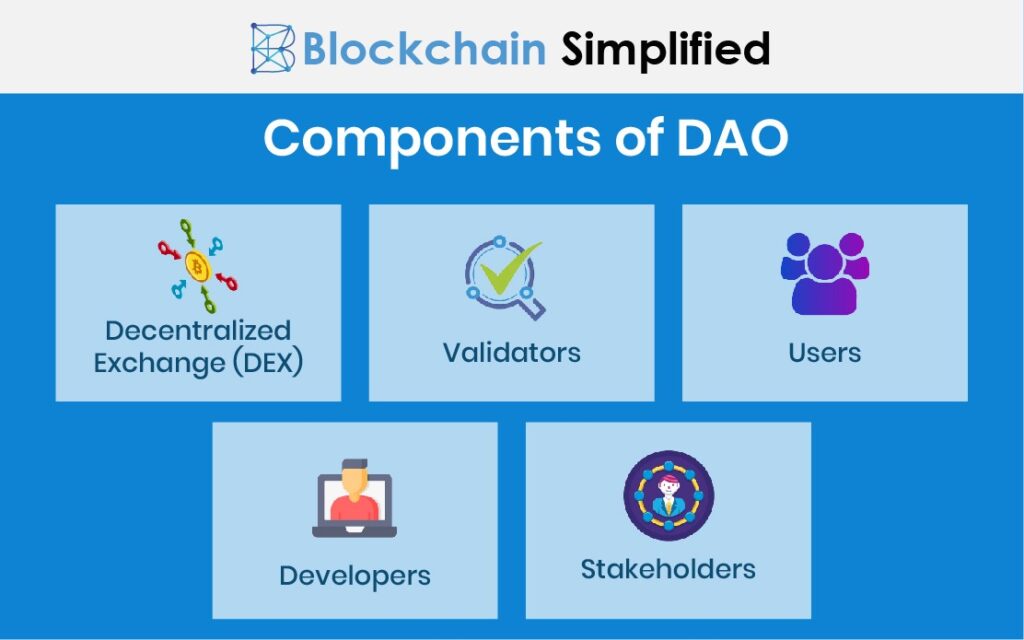A recent survey by FTX revealed that despite recent growth in DAO membership, most people do not know what a DAO is, regardless of being invested in cryptocurrency.
As the decentralized finance world develops, DAOs will become an essential tool for organizing digital communities and democratizing blockchain projects.
Here’s a quick overview of the essentials of DAOs and how you can join one.
Table of Contents
Components of DAOs

What is a crypto DAO and how can it benefit stakeholders? DAOs are built with three key components: decentralized decision-making, token-based membership, and transparent governance.
Decentralized Decision-Making
DAOs are a new and improved way to organize and govern digital communities. While traditional community platforms are governed by a central authority like a board of executives or other groups,
DAOs are governed by lines of code. This code is encrypted on the blockchain network with all of the essential rules of the community, such as financial management and dispute resolution.
These rule mechanisms are automatically executed by smart contracts when specific conditions are met within the network.
This system ensures that no individual or group of individuals holds a hierarchical position over other members of the community.
Further, when decisions need to be made that are not accounted for within the code, all members of the DAO will receive a vote to democratically determine the direction of the DAO.
Token-Based Membership
To join a DAO, you must first invest in the token that backs the blockchain of the DAO.
By requiring membership to be contingent on holding a stake within the community, DAOs promote collaboration and collective success rather than individualism and competition.
Not only do DAO members get the perks of the DAO resources, but they can also benefit from holding that specific token.
For example, members of the FTX DAO will have a stake in FTT, which offers token airdrops and exchange discounts for its coin holders. Further, by requiring a stake in the token for membership,
the sustainability and success of the DAO are tied to that of the token, creating a semi-self-sustaining blockchain network and digital community.
Transparent Governance
Finally, transparent governance is another essential characteristic of these DAOs. Because they are built on blockchain networks, there is always an accessible ledge of all decisions made within the community.

Every rule executed by the code, every vote cast, and every transaction made are all recorded on the network and accessible for anyone to see.
With such transparent governance, DAOs mitigate any risks of corruption, fraud, or inequities in decision-making and idea sharing.
Challenges Facing DAOs
The first DAO was created in 2016 on the Ethereum blockchain; however, due to a flaw in the code, hackers were able to steal nearly $60 million from the community.
Since then, DAOs have either been largely unknown or mistrusted. Security is just one challenge facing DAOs. Scalability is also essential when creating a digital community like this.
The blockchain network your DAO is built on must be strong enough to support a large community and continue to scale alongside that DAO.
Creating a fully functioning and scalable DAO is one thing, but the legalities of DAOs are another. Due to their decentralized nature,
it’s difficult to say where DAOs stand, legally speaking, concerning specific regional and international laws and regulations.
Despite these challenges, many successful and rapidly growing DAO projects worldwide exist. DAOs offer investors an opportunity to enter the decentralized finance world securely and fairly.
DAO communities protect investors’ interests and promote collaboration between stakeholders to better the community as a whole. Joining a DAO can give you greater control over your investment and offer you influence over the future of the crypto world.
